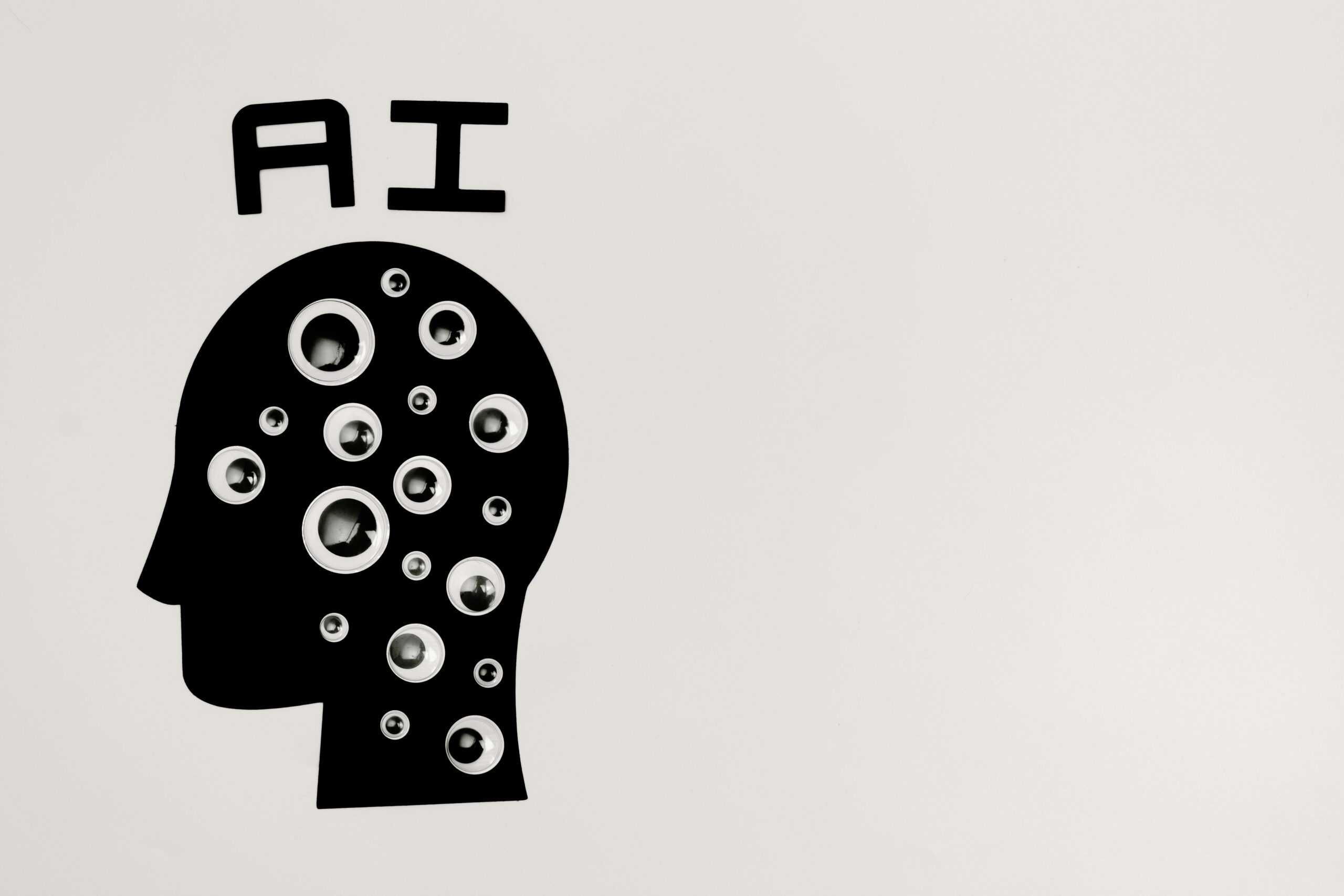
Guide to Upskilling in the Age of AI: Stay Competitive in the Rapidly Changing Job Market
According to McKinsey & Company, by 2030, up to 375 million workers may need to switch occupational categories to adapt to AI and automation. In this rapidly evolving job landscape, there is lots of talk about upskilling. The World Economic Forum defines upskilling as the process of acquiring new skills or improving existing ones to increase one’s employability and career prospects. From learning new technologies to developing essential soft skills, job seekers and employees must continuously grow to meet new challenges of the job market.
This guide outlines key areas for upskilling and offers practical tips for staying ahead in an AI-driven world.
1. Embrace Data Literacy: The Foundation of the Future Workplace
In today’s digital economy, data is everywhere, and its volume is only increasing. In fact, according to Forbes, 90% of the world’s data was generated in the last two years alone. However, many companies are struggling to make sense of this data. Harvard Business Review reports that over 70% of businesses experience challenges with data overload and need employees who can interpret and utilize data effectively.
Bernard Marr, a leading AI and data expert, emphasizes that “data literacy is no longer a luxury for employees, but a must-have skill for all levels of workers, from frontline staff to leadership.”
How to Improve Your Data Literacy:
- Learn Data Analytics: Tools like Excel, SQL, and Power BI are essential for analyzing and visualizing data. You can take online courses on platforms like Coursera, Udemy, and LinkedIn Learning to build your proficiency.
- Explore AI and Machine Learning: These technologies are key to processing and making sense of large datasets. Understanding basic AI and machine learning frameworks can significantly boost your career prospects. Resources like edX and DataCamp offer tailored programs for beginners.
- Participate in Data-Driven Projects: Hands-on experience is invaluable. Take part in projects, such as creating dashboards or analyzing publicly available datasets, to sharpen your skills.
2. Develop In-Demand Technical Skills
AI is rapidly automating routine tasks, but new roles are emerging that require advanced technical skills. Upskilling in areas like AI development, cloud computing, and cybersecurity can give you an edge in the job market.
Trending Technical Skills:
- Programming Languages: Mastering languages like Python, R, and Java is essential for roles in AI, data science, and software development. Python, in particular, is widely used in AI and machine learning projects due to its versatility.
- Cloud Computing: According to Gartner, cloud spending is expected to grow to $1 trillion by 2025, as businesses continue to migrate to cloud platforms. Learning how to work with AWS, Microsoft Azure, or Google Cloud can open doors to high-demand IT and tech roles.
- Cybersecurity: As cyber threats become more frequent, the need for cybersecurity professionals is growing. Upskilling in data privacy, network security, and digital forensics is essential in today’s digital-first workplace. There are numerous platforms offering cybersecurity courses both free and paid. Here are some popular options:
Free Platforms
Coursera, edX, Cybrary, HackTheBox, TryHackMe.
Paid Platforms
Udemy, Pluralsight, LinkedIn Learning, Offensive Security
Satya Nadella, CEO of Microsoft, highlights that “AI will be at the core of the next major wave of innovations, and those who embrace it early will drive progress in their fields.”
3. Enhance Critical Soft Skills
Technical expertise alone isn’t enough in the AI-driven future of work. Soft skills—such as problem-solving, adaptability, and collaboration—are becoming increasingly valuable as technology transforms job roles.
Key Soft Skills for the Future:
- Problem-Solving: AI can handle routine tasks, but complex problems still require human intervention. Practicing critical thinking through puzzles, case studies, or real-world scenarios can sharpen this skill.
- Adaptability: With AI constantly evolving, staying flexible is essential. Embrace new learning opportunities, remain open to change, and pivot quickly when necessary.
- Collaboration and Communication: AI technologies often require collaboration between different teams and disciplines. Clear communication and teamwork are vital for success in such environments.
The World Economic Forum’s “Future of Jobs Report 2020” lists adaptability and collaboration among the top skills workers will need by 2025 to thrive in a fast-changing job market.
4. Commit to Lifelong Learning
AI advancements mean that education is no longer something that ends with a degree. Continuous learning is key to maintaining a competitive edge in the workforce. With new technologies and trends emerging regularly, it’s important to commit to lifelong learning.
Tips for Lifelong Learning:
- Attend Webinars and Conferences: Staying up-to-date on industry trends is essential. Many organizations, such as MIT Technology Review and AI conferences, offer free or low-cost webinars about the latest developments in AI and related fields.
- Engage with Industry Thought Leaders: Follow experts on LinkedIn, read articles, and subscribe to newsletters to keep yourself informed. This helps you stay ahead of emerging trends and tools.
- Utilize Online Learning Platforms: Websites like Coursera, edX, and Udemy offer extensive courses covering AI, machine learning, business intelligence, and more. These platforms allow you to learn new skills at your own pace.
IBM recently reported that 120 million workers worldwide will need to upskill over the next three years due to the rapid adoption of AI and automation. As companies recognize this need, many are offering in-house training programs to help employees reskill.
5. Leverage Free and Affordable Learning Resources
Upskilling doesn’t have to be expensive. Many platforms provide free or low-cost opportunities to learn valuable skills in AI, data science, and more.
Popular Learning Platforms:
- Coursera: Offers free and affordable courses on AI, machine learning, data science, and business skills from top universities like Stanford and Yale.
- edX: Provides free courses on data analytics, cloud computing, and AI from universities such as Harvard and MIT.
- LinkedIn Learning: Offers a variety of technical and soft skills courses, making it a great resource for career development.
- Udemy: Provides access to thousands of courses across various fields, including business, technology, design, and personal development.
6. Upskill Through On-the-Job Experience
In addition to online courses, hands-on experience is essential for mastering new skills. Look for opportunities within your current job to work on projects that will push you out of your comfort zone and allow you to develop the skills needed in an AI-driven world.
How to Gain Experience:
- Take on Stretch Assignments: Volunteer for new projects that require you to learn and apply new technologies, such as AI tools or data analytics.
- Mentorship and Peer Learning: Seek out mentors within your organization who have expertise in the areas you want to improve. Learning from their experiences can provide practical, on-the-job insights.
- Internal Training Programs: Many organizations, like Amazon, are investing in reskilling programs to prepare their workforce for future challenges. Check with your company to see if similar opportunities are available.
Conclusion
AI is changing the job market at an unprecedented rate, but with change comes opportunity. By embracing upskilling—whether it’s data literacy, technical expertise, or soft skills—workers can stay competitive and thrive in the evolving workforce. The key is to start now, commit to continuous learning, and make use of the many resources available to future-proof your career.
Meta Description:
Discover how to stay competitive in an AI-driven job market by prioritizing upskilling. Learn key areas like data literacy, AI, and soft skills development based on expert opinions and recent research.
Keywords:
- Upskilling in AI
- AI and job market
- Importance of data literacy
- AI-driven future
- Technical skills for AI jobs
- Soft skills in AI workplace
- Lifelong learning AI
- Online learning platforms AI
- Career development with AI
- Adapting to AI automation
Citation:
“Did you know that AI is expected to displace 85 million jobs globally by 2025?” World Economic Forum‘s “Future of Jobs Report 2020.”
By 2030, up to 375 million workers may need to switch occupational categories due to AI and automation.” – McKinsey & Company’s “Jobs Lost, Jobs Gained” Report.
“Over 70% of businesses are struggling with data overload and need workers who can interpret data effectively.” – Harvard Business Review, “Why Data Literacy Matters.”
“Cloud spending is projected to reach $1 trillion by 2025 as businesses migrate to cloud platforms.” – Gartner Cloud Market Report.
“90% of the world’s data has been created in the last two years alone.” – Forbes, “The Growth of Data and the Rise of AI.”
“120 million workers worldwide will need to upskill in the next three years due to AI.” – IBM Skills Report 2020.
“Adaptability and collaboration are among the top skills workers will need by 2025.” – World Economic Forum, “Future of Jobs Report 2020.”













